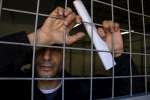- Text size
 |
|  |
|  |
| 
- Français
Top UNHCR official warns about ineffective and unresponsive asylum systems
News Stories, 30 September 2009
GENEVA, September 30 (UNHCR) – The UN refugee agency's top protection official warned Wednesday that asylum systems in some countries remain ineffective and unresponsive. Assistant High Commissioner for Protection Erika Feller said this was "in spite of substantial investment in capacity building, with many lacking sufficient procedural or protection safeguards, perhaps to serve a deterrent function."
Feller referred to a report received last week from one of UNHCR's European offices that highlighted the "remote and isolated location of reception centres for asylum-seekers, limited access to and low quality of state legal aid and interpretation services, absence of time limits for detention and insufficient number of procedural guarantees for vulnerable groups."
Addressing the 60th session of UNHCR's governing Executive Committee (ExCom), Feller said that while there had been improvements in the past year, insecurity and narrowing protection space are prevalent in too many countries.
In her annual speech to ExCom's 78 member states, Feller noted that among the positive developments, 600,000 refugees returned home around the world last year and more than 12,000 long-term refugees had been naturalized in Tanzania, which she describe as a "most praise-worthy development."
Feller said that heightened sensitivity to at-risk populations has resulted in "a better-calibrated response to the challenge of preventing and responding to sexual and gender-based violence."
In her fourth annual speech to ExCom since becoming Assistant High Commissioner in 2006, Feller noted that she sees a "worrying consistency" when it comes to the problems identified each year. She expressed concerns at the practice of detention for asylum-seekers, citing the example of a detention centre housing 150 women and 50 babies in one room.
During this week's gathering of ExCom, a number of the side events include discussions on the issue of narrowing humanitarian space. Feller said that "whether the sea is still an area of protection space is an open question at the moment," insisting that "rescue at sea is a time-honoured tradition, a fundamental matter of conscience and an international legal responsibility."
Recognizing that many asylum-seekers use the services of smugglers and are often travelling with migrants on board unseaworthy boats, she noted that this does not strip them of their own refugee character.
"Distinctions between refugee or migrant do not matter at the point of rescue. Saving life does. These are all factors which must be carefully weighed should it be contemplated to push boats off, or back somewhere else," she told delegates.
One of the more disturbing trends, said Feller, is the increasing number of unaccompanied and separated children seeking asylum. "Systems are often created with adult beneficiaries in mind, thereby exposing children to totally inappropriate or damaging situations," she said. "No matter what their status, children must be treated as children first and their best interests professionally identified and respected."
Highlighting UNHCR's new policy on urban refugees, Feller expressed the hope that the High Commissioner's Dialogue on Protection in December will improve awareness that "urban areas are indeed a legitimate place for refugees to enjoy their rights and receive protection."
Acknowledging that implementation of the policy will be a challenging task, she noted that "state authorities have the primary role," while UNHCR's role will be "to support and to partner."
The Assistant High Commissioner concluded that for many refugees, "asylum conditions can prove as devastating an experience in some situations as the circumstances which forced them into exile."
She highlighted the conditions in north-east Kenya's Dadaab, the site of the biggest refugee camp complex in the world. These included massive congestion, inadequate reception or registration systems, poor health and sanitation conditions and a worrying level of malnutrition.
"One can but wonder how, in these conditions, it can be said that asylum is providing real or meaningful human security," she said, adding: "Asylum in the context of large-scale arrivals, responding to displacement generated or exacerbated by new drivers, such as climate change, and burden sharing in the context of both, are in need of some new thinking."
By Sybella Wilkes in Geneva


















































